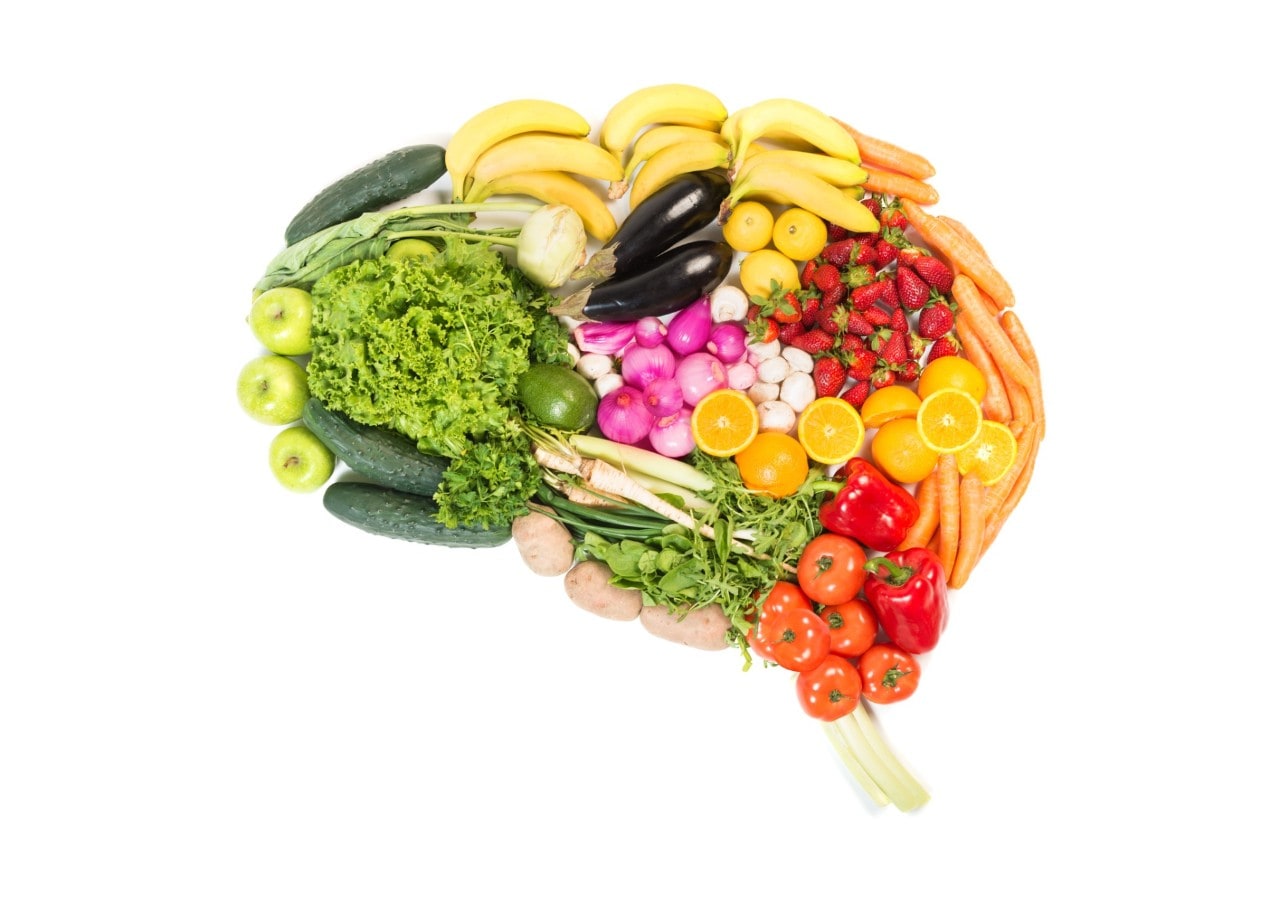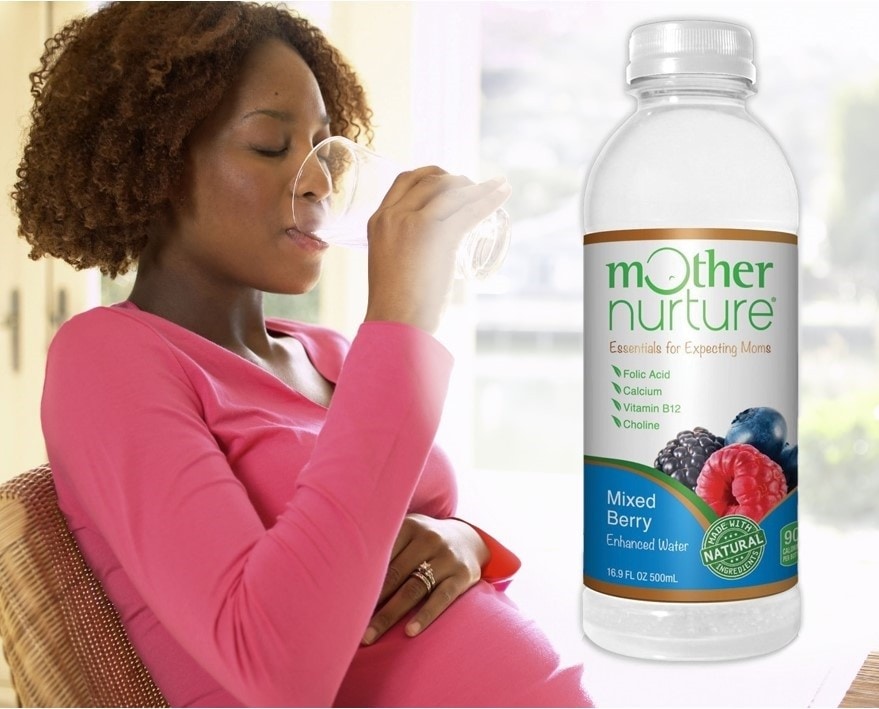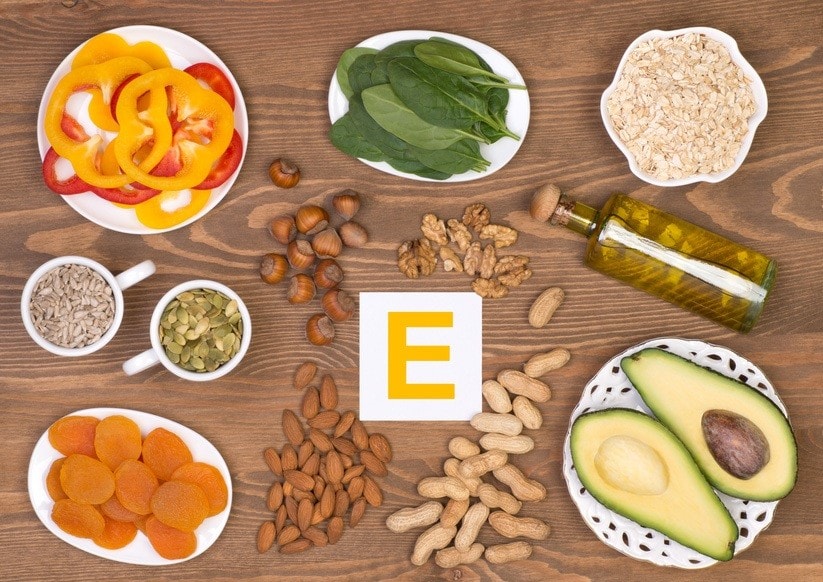
지속가능성 보고 카드 – 더블 A 등급 달성
DSM은 2017년에 기후 변화와 물 부문에서 A 등급을 받았습니다. 전 세계에서 더블 A 등급을 받은 기업은 단 25개뿐입니다. DSM의 지속가능성 노력에 대해 보다 자세히 알아보세요.
이 기사에 실린 제품: FloraGLO® Lutein
봄꽃에 비치는 태양. 아이가 자라는 모습. 사랑하는 사람의 얼굴을 보는 행복한 모습. 우리는 눈이 있음에 매일 기적을 보고 세상을 만끽합니다. 그런데도 시력을 당연하게 여기거나 노화에 따른 시력 저하를 피할 수 없는 현상으로 여깁니다. 그건 사실이 아닙니다. 고대 수렵 시대에는 우리가 “문명의 질병”이라고 부르는 심장병, 당뇨병, 시력 상실 등을 거의 볼 수가 없었습니다. (1) 최근의 연구에 따르면 우리의 노력 여하에 따라 평생 시력을 유지할 수 있습니다. (2–5)
우리는 식이 요법이 우리 눈 건강에 미치는 영향을 알아보기 위해 유명 영양사, 엘리자베스 소머와 인터를 했습니다.
ES: 노화는 눈 건강에 큰 위험 요소입니다. 수십 년 동안 자외선이나 담배 연기, 저항산화 식단 등에 노출될 수도 있기 때문입니다. 그러면 수정체의 산화 손상이 늘어날 위험이 있습니다. (6)
UVA와 UVB 빛을 차단하는 선글라스를 착용하고, 햇빛에 나갈 때마다 커다랗고 헐렁한 모자를 쓰고, 담배 연기를 피하고, 건강한 식단을 섭취하세요. 그러면 시력 손상이 크게 줄어듭니다. 또한, 조기에 시력 문제의 신호를 포착해야 합니다. 20대에는 적어도 한 번, 30대에는 두 번, 40대부터 64세까지는 2~4년에 한 번, 65세 이상은 1~2년에 한 번 안과에 가서 동공 후 검사를 받는 게 좋습니다.
ES: 당근은 신체에서 비타민 A로 전환되는 베타카로틴이 풍부합니다. 이 비타민은 눈의 망막에 있는 로돕신이라는 화합물을 구성하는 중요한 요소입니다. 로돕신 때문에 우리가 밤에 볼 수 있습니다. 비타민 A가 부족하면 “야맹증”에 걸릴 수 있습니다.
살구, 시금치를 비롯해 진한 주황색 또는 진한 녹색 과일과 채소는 모두 베타카로틴이 풍부합니다. 그런데 왜 당근이 유명해졌을까요? 가장 그럴 듯한 설은 2차 세계 대전 당시 영국군이 새 비밀 레이더 기술을 숨기려고 조종사들이 당근을 많이 먹고 밤눈이 좋아져 야간 폭격을 잘하게 됐다고 헛소문을 퍼뜨렸다는 것입니다. (7) 심지어 당근을 먹으면 도시 전체가 정전이 되어도 잘 볼 수 있다는 포스터가 등장하기도 했습니다. (7) 독일군이 그 소문을 믿었는지는 의문이지만, 그 미신은 아직까지 우리 생활 속에 남아 있습니다.
ES: 식단은 모든 연령대에서 전체적인 눈 건강에 중요한 역할을 합니다. 나이 관련 안질환 연구(AREDS)가 지금도 국립안연구소(National Eye Institute)의 후원 아래 계속 진행 중입니다. 이 연구를 통해 망막과 시각 기능을 돕는 영양소가 확인됐습니다. 눈 건강과 직결되는 5대 영양소가 있는데, 오메가-3s EPA와 DHA, 루테인 및 제아잔틴, 그리고 항산화 비타민 E(8–10)가 그것입니다.
ES: 우리 몸은 전체가 하나로 작용합니다. 따라서 붉은 고기와 같이 서양 식단에서 흔히 볼 수 있는 음식은 심장과 뇌에 해롭고 눈에도 해로울 수 있습니다. 반대로, 심장과 뇌에 좋은 음식은 평생 시력을 보호합니다. (28–30)
ES: 눈에는 이러한 영양소가 규칙적으로 공급되어야 합니다. 부족한 날에는 보충제를 먹는 방법도 있습니다. 루테인 10mg, 제아잔틴 2mg, 비타민 E 100IU ~ 400IU, EPA 및 DHA 함유 어유 1000mg가 들어 있는 보충제가 좋습니다. (35–37) FloraGLO® 루테인이 들어 있는 것을 비롯해 몇 가지 보충제는 AREDS 2 연구 결과를 근거로 제형을 만듭니다. 라벨에 그 연구 결과가 표시되었는지 확인한 후에 섭취하시기 바랍시오.
References
1. London D, Beezhold B: A phytochemical-rich diet may explain the absence of age-related decline in visual acuity of Amazonian hunter-gatherers in Ecuador. Nutrition Research 2015;35:107-117.
2. Cohen S, Mauget-Faysse M, Oubraham H, et al: Impact of eating habits on macular pathology assessed by macular pigment optical density measure. Journal of French Ophthalmology 2010;33:234-240.
3. Marshall L, Roach J: Prevention and treatment of age-related macular degeneration. The Consultant Pharmacists 2013;28:723-737. (E)
4. Pinazo-Duran M, Gomex-Ulla F, Arias L, et al: Do nutritional supplements have a role in age macular degeneration prevention? Journal of Ophthalmology 2014;2014:901686.
5. Rasmussen H, Johnson E: Nutrients for the aging eye. Clinical Interventions in Aging 2013;8:741-748.
6. Barrett J: Focusing on vision through an environmental lens. Environmental Health Perspectives. 2005;113:A822-A827.
7. Smith K:The WWII propaganda campaign popularized the myth that carrots help you see in the dark. Smithsonian.com. http://www.smithsonianmag.com/arts-culture/a-wwii-propaganda-campaign-popularized-the-myth-that-carrots-help-you-see-in-the-dark-28812484/
8. The Age-Related Eye Disease Study 2 Research Group: Lutein + zeaxanthin and omega-3 fatty acids for age-related macular degeneration. Journal of the American Medical Association 2013;309:2005-2015.
9. Chew E, Clemons T, Agron E, et al: Long-term effects of vitamins C and E, beta carotene, and zinc on age-related macular degeneration: AREDS report no. 35. Ophthalmology 2013;120:1604-1611.
10. Vishwanathan R, Chung M, Johnson E: A systematic review on zinc for the prevention and treatment of age-related macular degeneration. Investigative Ophthalmology & Visual Science 2013;54:3985-3998.
11. McCusker M, Durrani K, Payette M, et al: An eye on nutrition: The role of vitamins, essential fatty acids, and antioxidants in age-related macular degeneration, dry eye syndrome, and cataract. Clinical Dermatology 2016;34:276-285.
12. Arnold C, Winter L, Frohlich K, et al: Macular xanthophylls and omega-3 long-chain polyunsaturated fatty acids in age-related macular degeneration. Journal of the American Medical Association: Ophthalmology 2013;March 21:1-9.
13. Dawczynski J, Jentsch S, Schweitzer D, et al: Long term effects of lutein, zeaxanthin and omega-3-LCPUFAs supplementation on optical density of macular pigment in AMD patients: The LUTEGA study. Archives of Clinical and Experimental Ophthalmology 2013;251:2711-2723. (Excellent reference list as well!)
14. Garcia-Layana A, Recalde S, Alaman A, et al: Effects of lutein and docosahexaenoic acid supplementation on macular pigment optical density in a randomized controlled trial. Nutrients 2013;5:543-551.
15. Nguyen C, Bui B, Sinclair A, et al: Dietary omega 3 fatty acids decrease intraocular pressure with age by increasing aqueous outflow. Investigative Ophthalmology & Visual Science2007;48:756-762.
16. Kwon J, Ham S: Omega-3 supplementation can improve both symptoms and signs of dry eye disease. Clinical Interventions in Aging 2017;12:485-486.
17. Mohammadpour M, Mehrabi S, Hassanpoor N, et al: Effects of adjuvant omega 3 fatty acid supplementation on dry eye syndrome following cataract surgery. Journal of Current Ophthalmology 2016;29:33-38.
18. Aslam T, Delcourt C, Silva R, et al: Micronutrients in age-related macular degeneration. Ophthalmologica 2013;229:75-79.
19. Bovier E, Lewis R, Hammond B: The relationship between lutein and zeaxanthin status and body fat. Nutrients 2013;5:750-575.
20. Johnson E: A possible role of lutein and zeaxanthin in cognitive function in the elderly. American Journal of Clinical Nutrition 2012;96:1161S-1165S.
21. Johnson E, Maras J, Rasmussen H, et al: Intake of lutein and zeaxanthin differ with age, sex, and ethnicity. Journal of the American Dietetic Association 2010;110:1357-1362.
22. Murray I, Makridaki M, van der Veen R, et al: Lutein supplementation over a one-year period in early AMD might have a mild beneficial effect on visual acuity. Investigative Ophthalmology and Visual Science 2013;54:1781-1788.
23. Loskutova E, Nolan J, Howard A, et al: Macular pigment and its contribution to vision. Nutrients 2013;5:1962-1969.
24. Chew E: Nutrition effects on ocular disease in the aging eye. Investigative Ophthalmology & Visual Science 2013;54:(14):ORSF42-7.
25. Cui Y, Jing C, Pan H: Association of blood antioxidants and vitamins with risk of age-related cataract. American Journal of Clinical Nutrition 2013;July 10th.
26. Zhang Y, Jiang W, Xie Z, et al: Vitamin E and risk of age-related cataracts. Public Health Nutrition 2015;18:2804-2814.
27. Cui Y, Jing C, Pan H: Association of blood antioxidants ad vitamins with risk of age-related cataract. American Journal of Clinical Nutrition 2013;98:778-786.
28. The long-term health of vegetarians and vegans. Proceedings of the Nutrition Society 2016;75:287-293.
29. Theodoropoulou S, Samoli E, Theodossiadis P, et al: Diet and cataracts: A case-control study. International Ophthalmology 2014;34:59-68.
30. Tavani A, Negri E, La Vecchia C: Food and nutrient intake and risk of cataract. Annals of Epidemiology 1996;6:41-46.
31. Johnson E, McDonald K, Caldarella S, et al: Cognitive findings of an exploratory trial of docosahexaenoic acid and lutein supplementation in older women. Nutritional Neuroscience 2008;11:75-83.
32. Johnson E, Vishwanathan R, Johnson M, et al: Relationship between serum and brain carotenoids, alpha tocopherol, and retinol concentrations and cognitive performance in the oldest old from the Georgia Centenarian Study. Journal of Aging Research 2013;2013:951786.
33. Pastor-Valero M: Fruit and vegetable intake and vitamins C and E are associated with a reduced prevalence of cataracts in a Spanish Mediterranean population. BMC Ophthalmology 2013;13:52. http://www.ncbi.nlm.nih.gov/pubmed/24106773
34. Vishwanathan R, Iannaccone A, Scott T, et al: Macular pigment optimal density is related to cognitive function in older people. Age and Ageing 2014;January 15th.
35. https://www.macular.org/nutritional-supplements-article?gclid=COm9hYuUhNQCFchefgodWXML0w
36. Manikandan R, Thiagarajan R, Goutham G, et al: Zeaxanthin and health, from bench to bedside. Fitoterapia 2016;109:58-66.
37. Chiu C, Change M, Zhang F, et al: The relationship of major American dietary patterns to age-related macular degeneration. American Journal of Ophthalmology 2014;158:118-127.

DSM은 2017년에 기후 변화와 물 부문에서 A 등급을 받았습니다. 전 세계에서 더블 A 등급을 받은 기업은 단 25개뿐입니다. DSM의 지속가능성 노력에 대해 보다 자세히 알아보세요.

이제 식품 제조업체에서 상품 라벨에 비타민 D 함량을 표기하는 것이 의무화되었습니다. 따라서 식품에서 비타민을 얼마나 섭취하고 있는지 확인할 수 있습니다. 하지만 이것만으로는 충분하지 않습니다. 그 이유에 대해 클리브랜드 클리닉의 미셀 로이젠 의사로부터 들어보세요.

장내 미생물이 소화기능, 면역 기능, 그리고 심지어 기분에까지 영향을 미칠 수 있다는 연구가 계속 입증되고 있습니다. 소화관을 최고의 상태로 만들 수 있는 자세한 방법에 대해 알아보세요.

미국에서 비타민 결핍증은 점점 더 생각보다 더욱 흔한 문제가 되어 가고 있습니다. 새로운 연구에 따르면 미국 성인 중에서 거의 1/3이 최소 1가지 이상의 비타민 결핍증에 걸릴 위험이 있습니다.


임신 중이거나 임신을 계획하고 있는 사람이라면 아마도 엽산을 섭취하라는 소리를 들어봤을 것입니다.


임신했다면 단 것, 짠 것, 신 것, 튀김 등 식욕이 증가할 수 있습니다. “YOU: Having a Baby(아이를 가진 당신)”라는 책에 따르면 임신한 여성의 75%가 식욕이 증가했다고 합니다.

기분이 언짢을 때 풀어 주는 해피 알약이 있다면 좋지 않겠습니까? 남편, 혹은 아내에게 마구 화를 내고 싶을 때 마음을 진정시켜 주는 알약은 어떤가요? 알약은 아니지만 간편하게 만들 수 있는 방법이 있습니다. 우리가 먹는 (혹은 먹지 않는) 음식이 기분을 크게 좌우합니다.

미국심장학회의 2014년 심장병과 뇌졸중 최신 통계에 따르면 심장병과 뇌졸중은 여전히 미국인의 사망 원인 1위, 2위입니다. 장기적인 심장 건강 예방관리는 빨리 시작하면 할수록 좋습니다. 심장병에 맞서 싸울 가장 좋은 방법은 무엇일까요? 건강한 식습관입니다.
13 November 2017

DSM은 2017년에 기후 변화와 물 부문에서 A 등급을 받았습니다. 전 세계에서 더블 A 등급을 받은 기업은 단 25개뿐입니다. DSM의 지속가능성 노력에 대해 보다 자세히 알아보세요. 자세히보기.

이제 식품 제조업체에서 상품 라벨에 비타민 D 함량을 표기하는 것이 의무화되었습니다. 따라서 식품에서 비타민을 얼마나 섭취하고 있는지 확인할 수 있습니다. 하지만 이것만으로는 충분하지 않습니다. 그 이유에 대해 클리브랜드 클리닉의 미셀 로이젠 의사로부터 들어보세요. 자세히보기.

장내 미생물이 소화기능, 면역 기능, 그리고 심지어 기분에까지 영향을 미칠 수 있다는 연구가 계속 입증되고 있습니다. 소화관을 최고의 상태로 만들 수 있는 자세한 방법에 대해 알아보세요. 자세히보기.

미국에서 비타민 결핍증은 점점 더 생각보다 더욱 흔한 문제가 되어 가고 있습니다. 새로운 연구에 따르면 미국 성인 중에서 거의 1/3이 최소 1가지 이상의 비타민 결핍증에 걸릴 위험이 있습니다. 자세히보기.


임신 중이거나 임신을 계획하고 있는 사람이라면 아마도 엽산을 섭취하라는 소리를 들어봤을 것입니다. 자세히보기.